Journal of Daylighting
An international journal devoted to investigations of daylighting in buildings. It is the leading journal that publishes original research on all aspects of Energy, buildings, and lighting.
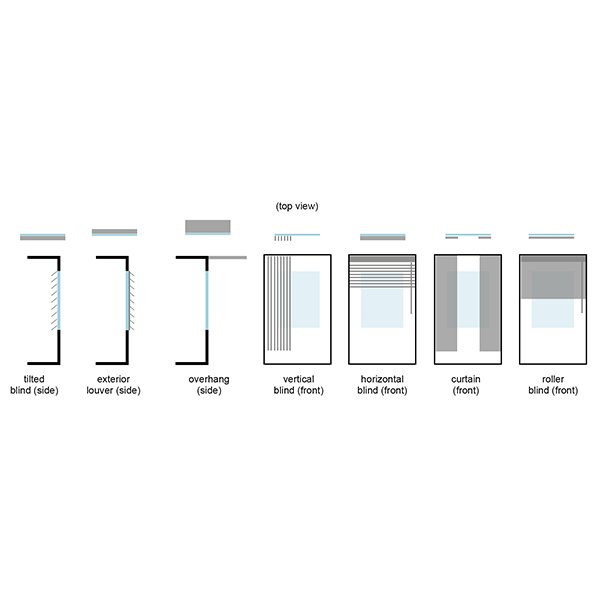
REVIEW ARTICLE
Daylight Enhancement Strategies for Historic Buildings: A Critical Review of
With the growing urgency to reduce carbon emissions in the built environment, enhancing daylight availability in historic buildings has become a critical and challenging task due to the required balance between environmental sustainability objectives and cultural heritage conservation principles.
Journal of Daylighting 13 (2026) 57-75
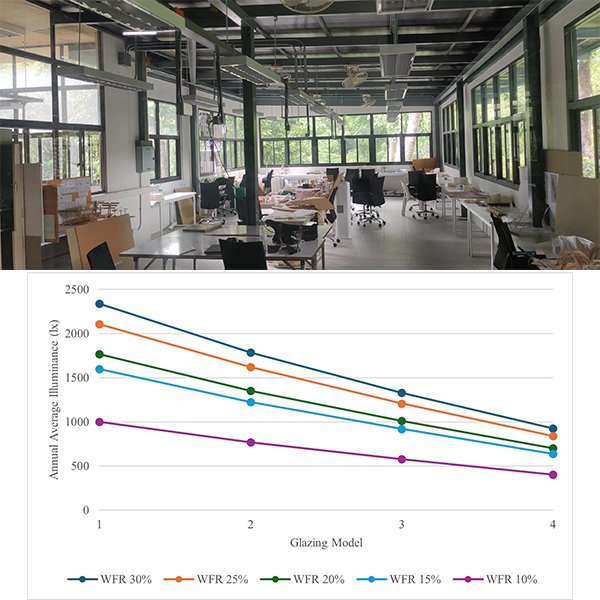
RESEARCH ARTICLE
Optimizing Window-to-Floor Ratio and Glazing for Daylight and
In tropical climates, where cooling loads dominate building energy use, minimizing cooling demand is particularly critical for achieving carbon neutrality in educational buildings while maintaining adequate daylight and visual comfort.
Journal of Daylighting 13 (2026) 44-56
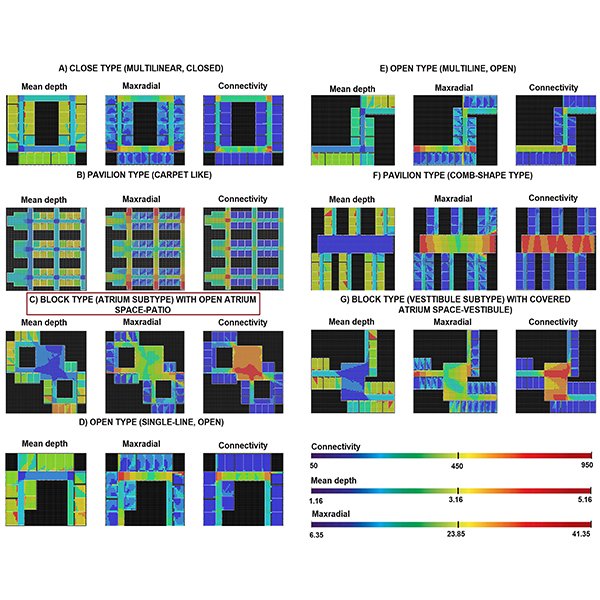
RESEARCH ARTICLE
Comparative Analysis of Daylight and Visual Quality Across School Plan
Designing daylight-based spaces has gained increasing attention due to its numerous benefits and alignment with global sustainability standards. However, limited research has focused on how architectural layouts affect daylight distribution and visual quality, particularly in educational environments.
Journal of Daylighting 13 (2026) 20-43

RESEARCH ARTICLE
Effects of Urban Obstructions on Spatial Daylight Autonomy (sDA) and
The limited research on obstruction-driven daylight reduction continues to hinder efforts to optimize natural daylight in compact mid-rise residential buildings.
Journal of Daylighting 13 (2026) 1-19
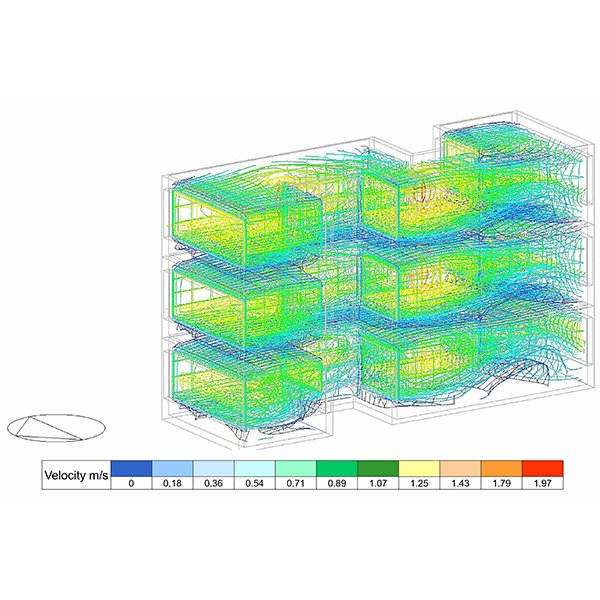
RESEARCH ARTICLE
Integration of light well through generative design to achieve optimal
A case of urban densification in heritage towns like Pondicherry has led to deep-plan wall to wall layouts, where the depth of the plot is considerably more than its width and multi-storey buildings with limited access to day light and natural ventilation.
Journal of Daylighting 12 (2025) 548-560
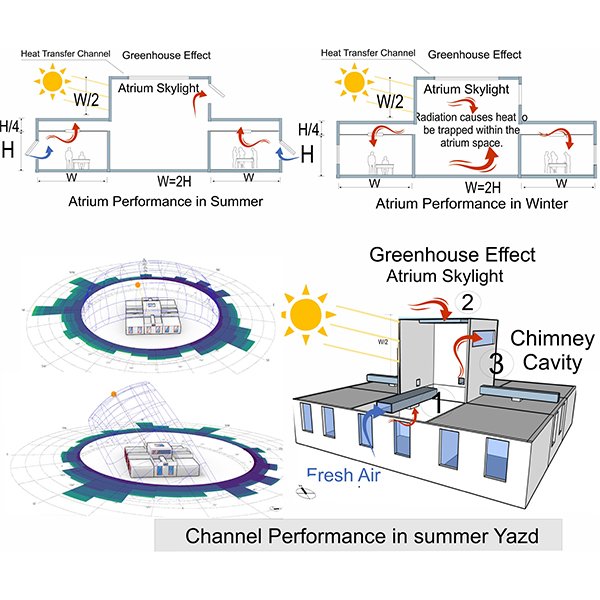
RESEARCH ARTICLE
Design Optimization of Atrium Skylights for Enhanced Office Building Performance
The increasing demand for energy and the impact of climate change underscore the necessity of energy-efficient building designs. This study optimizes atrium skylights as a passive design solution for Yazd, Iran aiming to enhance thermal and visual comfort.
Journal of Daylighting 12 (2025) 520-547
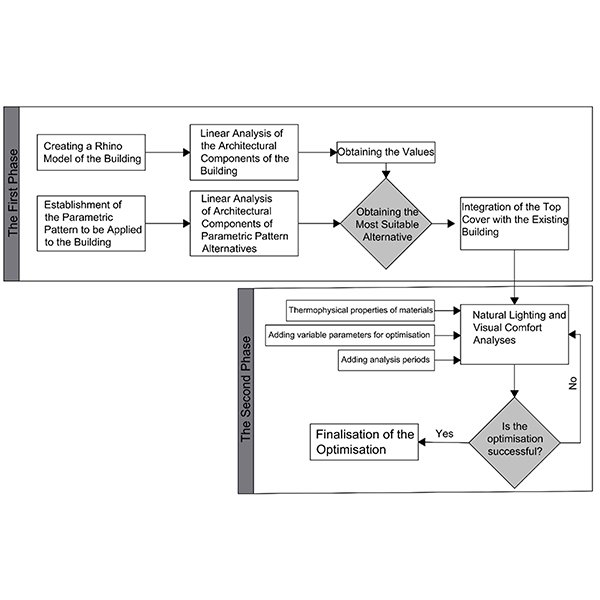
RESEARCH ARTICLE
Parametric Exploration of Natural Lighting and Visual Comfort in Contemporary
The re-functioning of historical buildings frequently necessitates new additions. This is particularly relevant for historical buildings with open courtyards, where interventions often involve the installation of upper covers using contemporary materials and techniques This issue can become especially apparent in historical buildings that are completely enclosed with transparent materials, raising concerns about the greenhouse effect and its potential to compromise indoor comfort.
Journal of Daylighting 12 (2025) 506-519
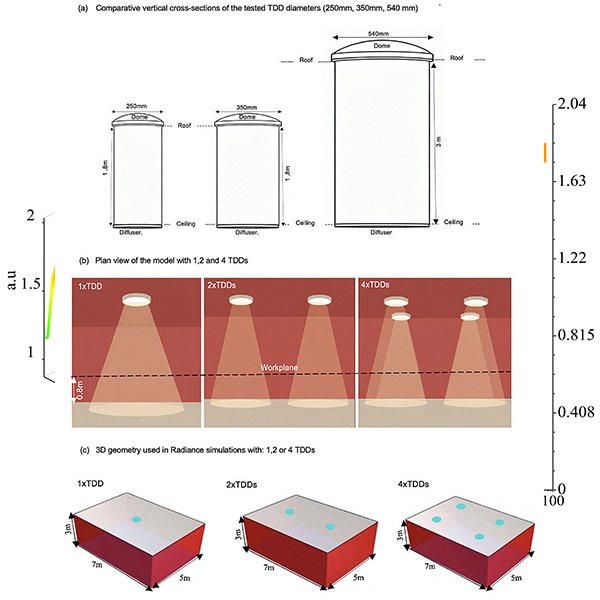
RESEARCH ARTICLE
Multi-Criteria Optimization of Tubular Daylighting Devices for Classrooms in
In educational architecture, particularly in high-solar climates, achieving a balance between ample daylight and visual comfort is a significant challenge.
Journal of Daylighting 12 (2025) 491-505
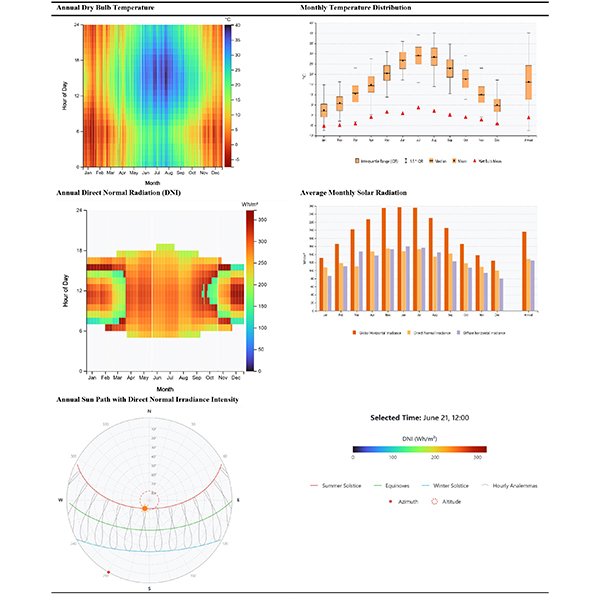
RESEARCH ARTICLE
Multi-objective Optimization of Girih Tile Patterns and Colored Glass
Efficient energy use is vital in architecture, and the building envelope plays a key role in aesthetics, thermal comfort, energy efficiency, and natural lighting.
Journal of Daylighting 12 (2025) 441-467
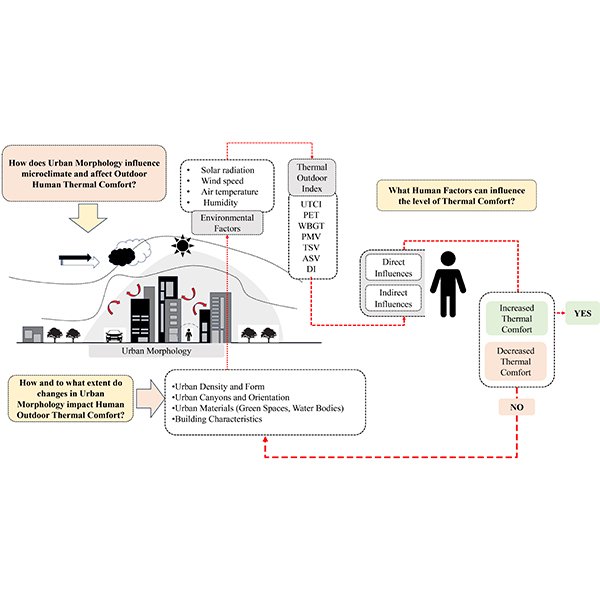
REVIEW ARTICLE
Human Interaction with Urban Morphology under the Influence of Urban
Outdoor urban spaces are essential to residents’ well-being, yet their thermal comfort is increasingly compromised by urbanization and climate change. .
Journal of Daylighting 12 (2025) 468-490
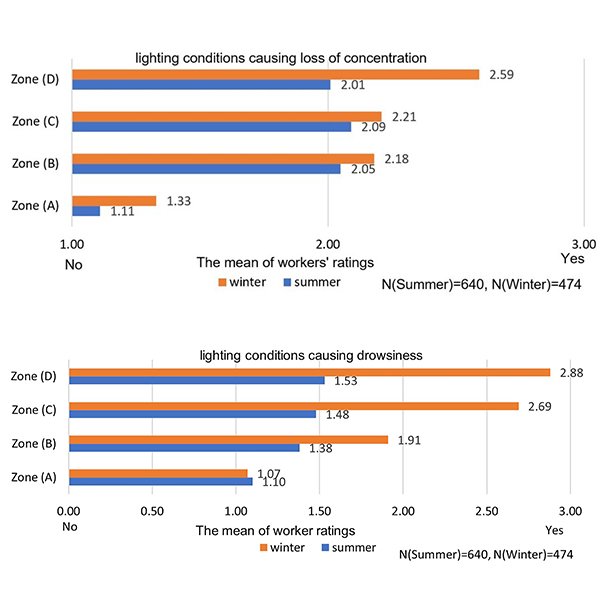
RESEARCH ARTICLE
Evaluating the Impact of Lighting Conditions on Workers’ Safety and
Lighting is a key element of design that plays a significant role in affecting workers’ health and safety in industrial workspaces. Given the scarcity of scientific studies addressing visual environments in relation to workers health in industrial buildings, this field study was conducted to explore workers' responses to multiple lighting scenarios inside production halls on their occupational health and safety in six factories in Sadat City, Egypt. .
Journal of Daylighting 12 (2025) 420-440
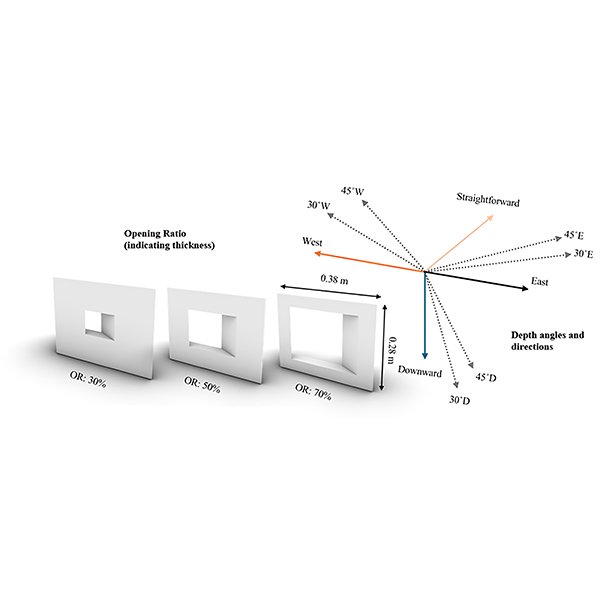
RESEARCH ARTICLE
Evaluating Daylighting Performance of Parametric Mashrabiya in Mediterranean Climate: A
This study examines the daylighting performance of parametric Mashrabiya-inspired shading devices in a Mediterranean climate, aiming to enhance occupant comfort and visual performance.
Journal of Daylighting 12 (2025) 397-419
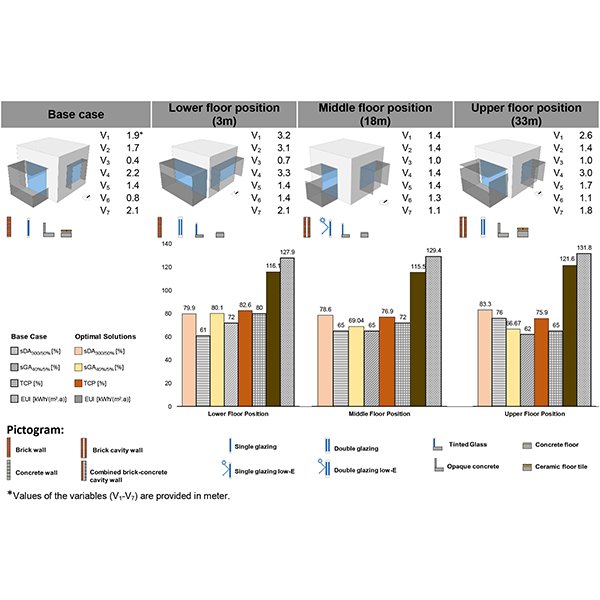
RESEARCH ARTICLE
Height-Responsive Balcony-Integrated Envelope Design for High-Rise Residential
Balconies function as essential shading elements within the building envelope, playing a critical role in regulating occupant comfort and energy efficiency.
Journal of Daylighting 12 (2025) 375-396
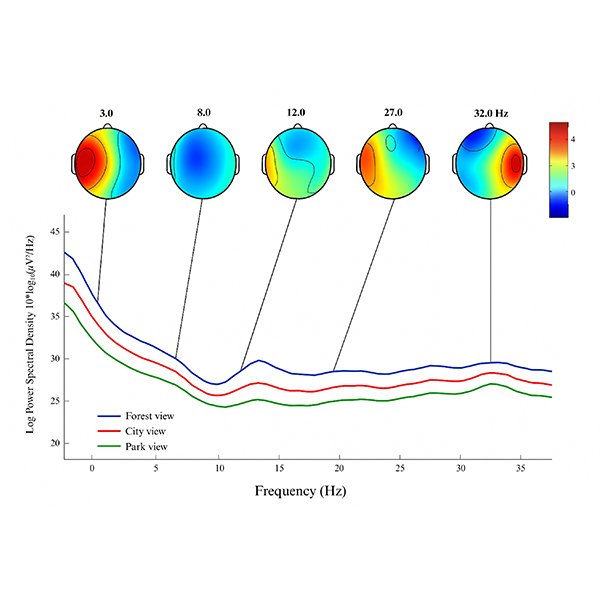
RESEARCH ARTICLE
EEG-Based Neurophysiological Responses to Classroom Window Views in Green
This study examines the neurophysiological responses of students to different classroom window views - forest, park, and city - within energy-efficient, green campus environments.
Journal of Daylighting 12 (2025) 359-374
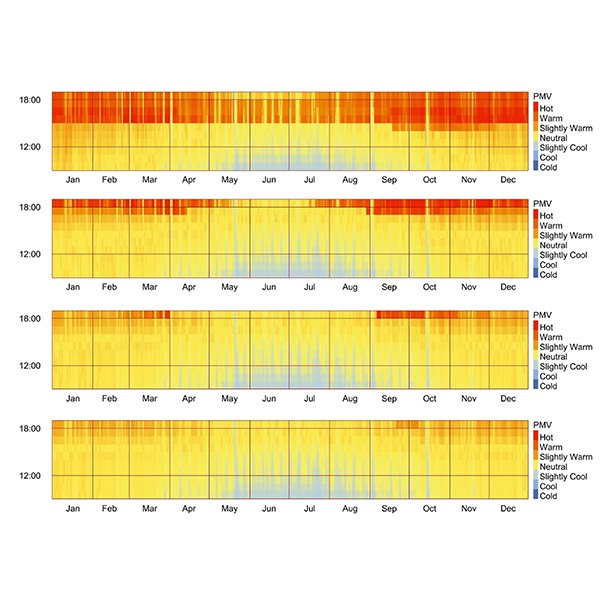
RESEARCH ARTICLE
Enhancing Year-Round Thermal Comfort with Solar Control Films: A
Windows significantly contribute to thermal discomfort in high solar irradiance climates by allowing excessive heat gains and uneven indoor temperatures.
Journal of Daylighting 12 (2025) 343-358
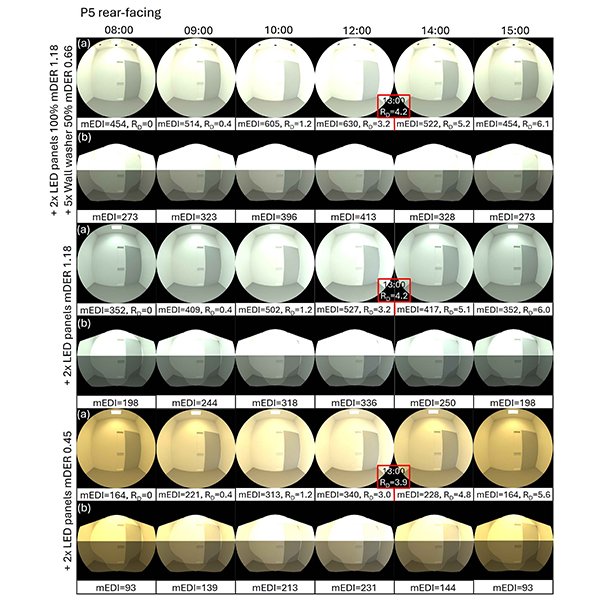
RESEARCH ARTICLE
Evaluating Visual and Beyond-Vision Light Effects and Energy Consumption
Light influences human physiology and psychology through visual and beyond-visual effects, collectively termed ‘integrative lighting.’ Human responses depend on luminous (quantity, spectrum, directionality) and temporal (timing, duration, history) factors, yet no studies examined their combined influence on integrative lighting. Th.
Journal of Daylighting 12 (2025) 306-342
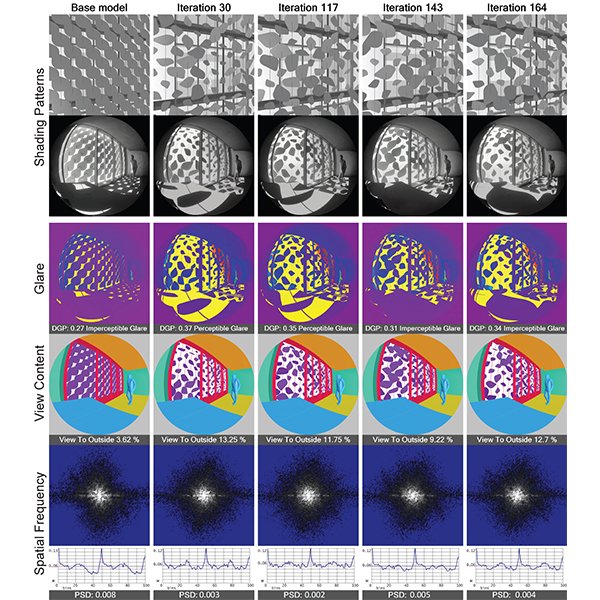
RESEARCH ARTICLE
Occupant-Centric Visual Comfort Assessment and Optimization of Passive Solar
This study introduces a comprehensive computational framework integrating image-based simulations, spatial frequency analysis, and multi-objective optimization to evaluate and optimize passive solar shading devices from an occupant-centric perspective.
Journal of Daylighting 12 (2025) 293-305
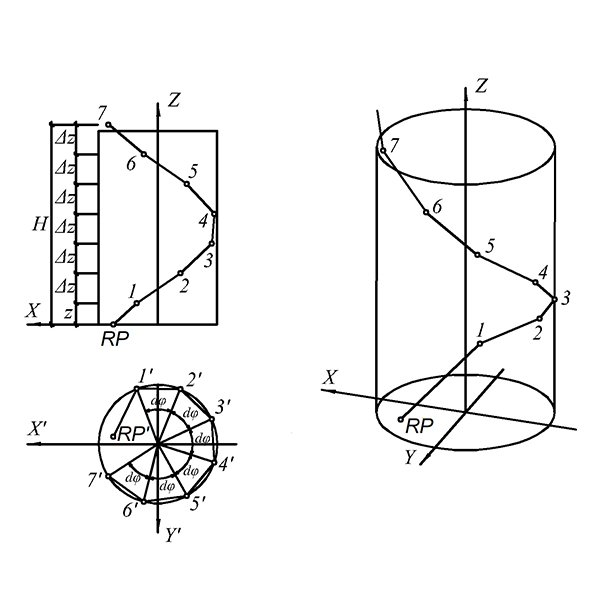
RESEARCH ARTICLE
Determination of Efficiency of the Vertical Specularly Reflecting Cylindrical Light
Article is devoted to determination of efficiency of the vertical specularly reflecting cylindrical light shaft for various types of the firmaments standardized by CIE (International Commission on Illumination).
Journal of Daylighting 12 (2025) 278-292
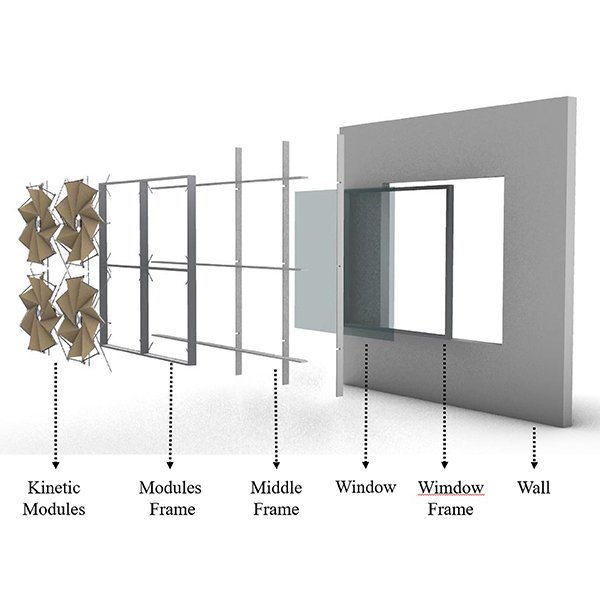
RESEARCH ARTICLE
Designing a Kinetic Façade to Control Glare: Inspiration of
In this study, to control glare in buildings with glass facades, a kinetic facade was designed using a pattern inspired by nature. Accordingly, in this study, due to the essential similarity of buildings with plants regarding the inability to move and location, in the first step, plants and their morphology were examined.
Journal of Daylighting 12 (2025) 265-277

RESEARCH ARTICLE
Tessellation-Based Origami-Inspired Movable Façade for Daylighting and
This study emphasizes the importance of daylight performance in interior spaces as a critical factor in achieving global Sustainable Development Goals, including energy efficiency, environmental sustainability, and healthy living conditions.
Journal of Daylighting 12 (2025) 252-264

RESEARCH ARTICLE
Design Alternatives of Light Shelves using Altmann Linkage
This paper proposes a novel new light shelf design with Altmann linkage using its kinetic principles: geometry and rotational angles. As previous studies explain a light shelf’s design in two ways: static and movable, the proposed one in this study has the potential to track the path of the sun due to its diagonal movement. .
Journal of Daylighting 11 (2024) 391-407
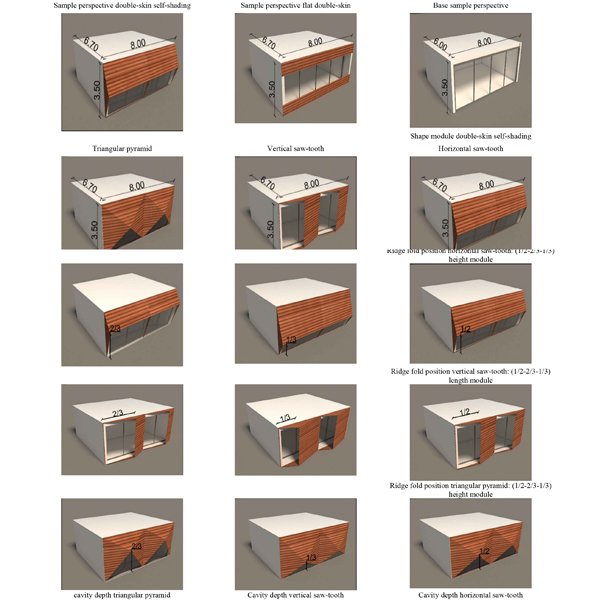
RESEARCH ARTICLE
Optimum Geometry of Double-skin Self-Shading Facade of Classrooms
The significant energy consumption in educational spaces worldwide and its environmental impact greatly influence the quality of space, learning levels, and student comfort.
Journal of Daylighting 11 (2024) 372-389
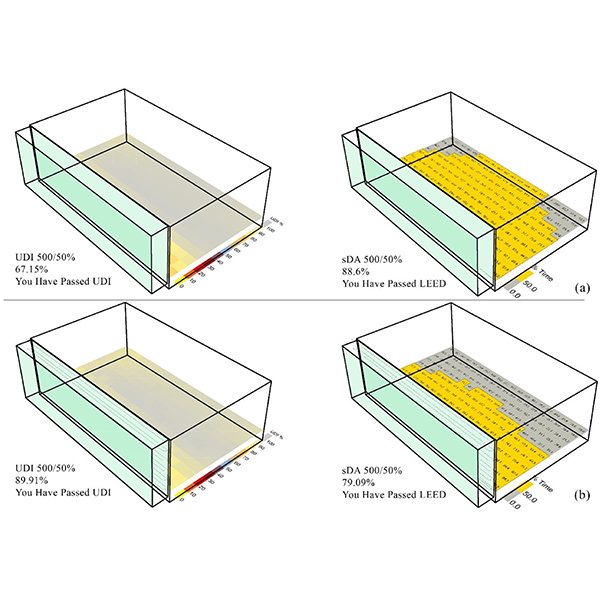
RESEARCH ARTICLE
Parametric Optimization Approach to Evaluate Dynamic Shading Within Double-Skin
This research aims to support the choice of an appropriate dynamic louver shading system (DL-SS) within double-skin facade insulated glazed units (DSF-IGUs) as a high-performance integrated window system (DSF-IGUs/DL-SS) that meets both thermal and energy performance via daylight availability under a tropical climate.
Journal of Daylighting 11 (2024) 349-371
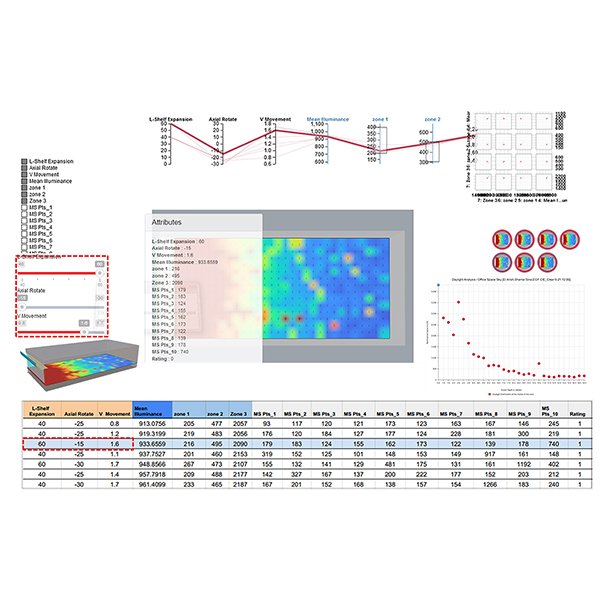
RESEARCH ARTICLE
Artificial Neural Network to Predict Curvature Light Shelf Design Related
Energy Optimization in building design field now has been revolutionized due to AI and machine learning applications. Leveraging daylight to reduce artificial lighting consumption holds promise for significant energy savings, yet the nonlinear nature of daylight patterns poses challenges in prediction and optimization.
Journal of Daylighting 11 (2024) 334-348
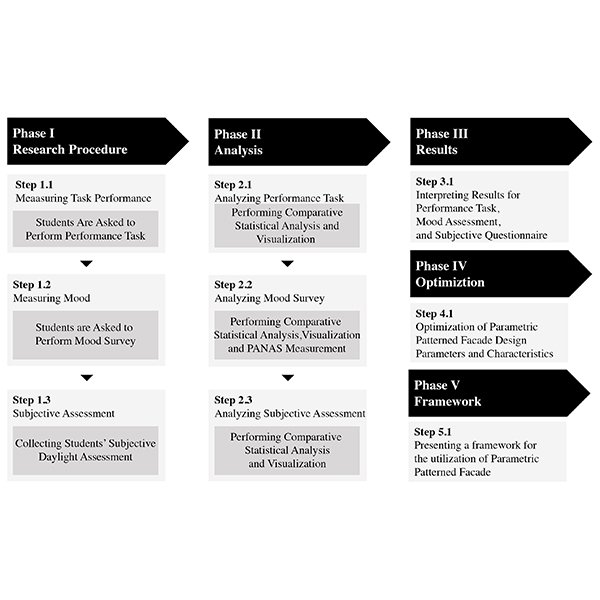
RESEARCH ARTICLE
Investigation of the Effect of Parametric Patterned Façade and
Parametric design is one of the thriving contemporary architectural treatments that not only has an influence on the design of building envelopes but is capable of affecting the users physically and psychologically.
Journal of Daylighting 11 (2024) 312-333
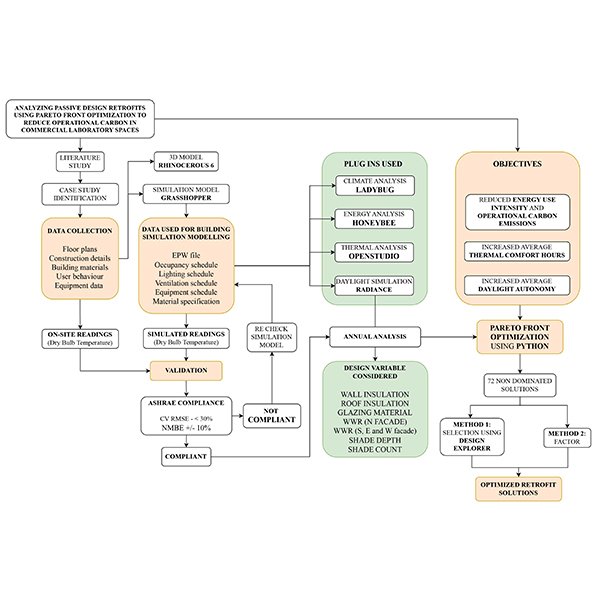
RESEARCH ARTICLE
Analyzing Passive Design Retrofits using Pareto Front Optimization to Reduce
Buildings are one of the leading sources of carbon emissions in the world. Most of the carbon emissions are released during the operation phase of the building.
Journal of Daylighting 11 (2024) 290-311
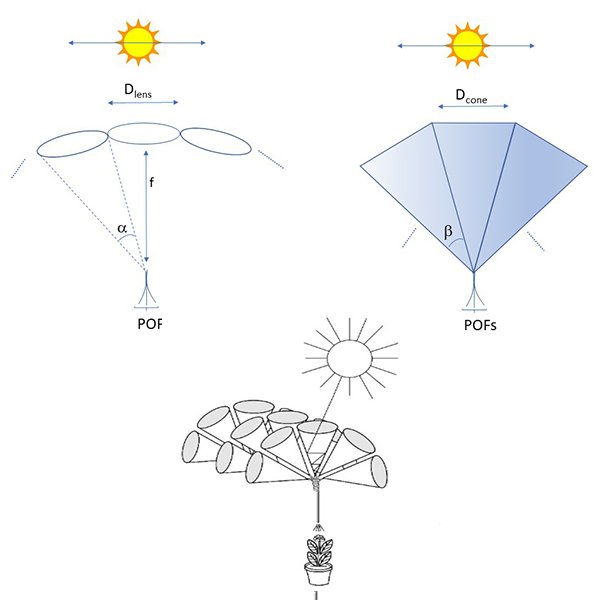
RESEARCH ARTICLE
Tracker-less Sunlight Collection Apparatus, using an Array of Optical
The paper describes an array of optical cones as a potential configuration for tracker-less daylighting, without using an electro-mechanical tracker. Subsequently, a single optical cone is analyzed, mainly in terms of sunlight collection efficiency and acceptance angle, as a function of the cone's geometrical dimensions.
Journal of Daylighting 11 (2024) 279-289
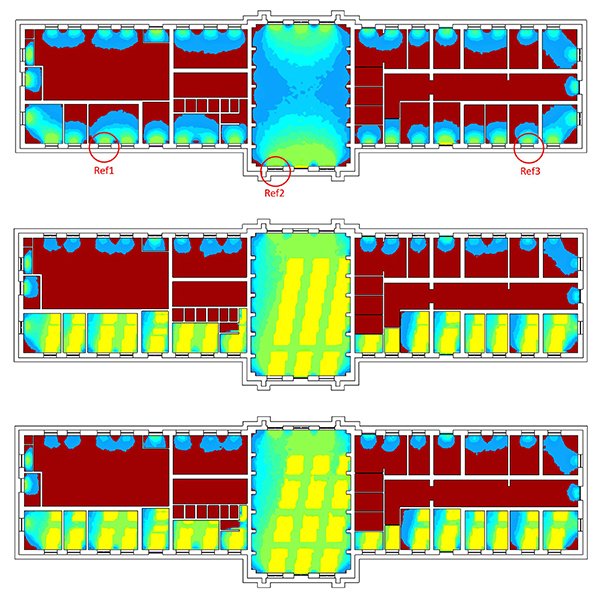
RESEARCH ARTICLE
Analytical Study on Reducing the Heating Effects of Daylight and
Climate change is an environmental issue that is rapidly escalating due to the effects of global warming. The increase in carbon emissions, along with various human activities such as industrial processes, land use changes, and the reckless consumption of natural resources, are among the primary causes of global warming.
Journal of Daylighting 11 (2024) 268-278
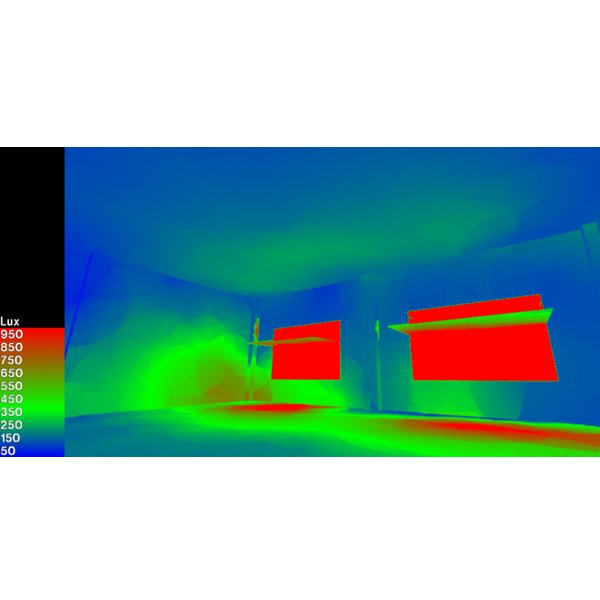
RESEARCH ARTICLE
Optimising Daylighting Performance Through Side light with Passive Devise Design
Passive lighting design plays an important role in providing natural lighting to save electricity consumption in buildings. This study aims to investigate the performance of natural lighting and the potential of alternative designs through sidelights with 3 shading device models and light shelves with different sizes in north, west, east, and south orientations.
Journal of Daylighting 11 (2024) 247-267
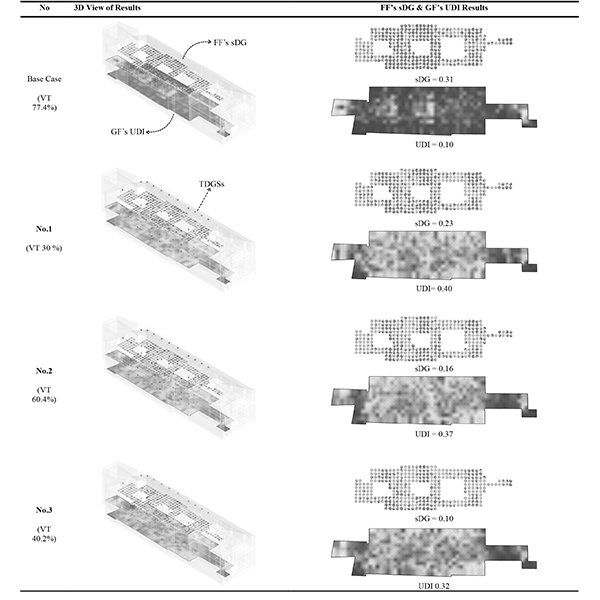
RESEARCH ARTICLE
Daylight Enhancement Strategies Through Roof for Heritage Buildings
Enhancing daylighting in heritage buildings is a complex challenge that requires a delicate balance between preserving architectural integrity and improving visual comfort.
Journal of Daylighting 11 (2024) 234-246
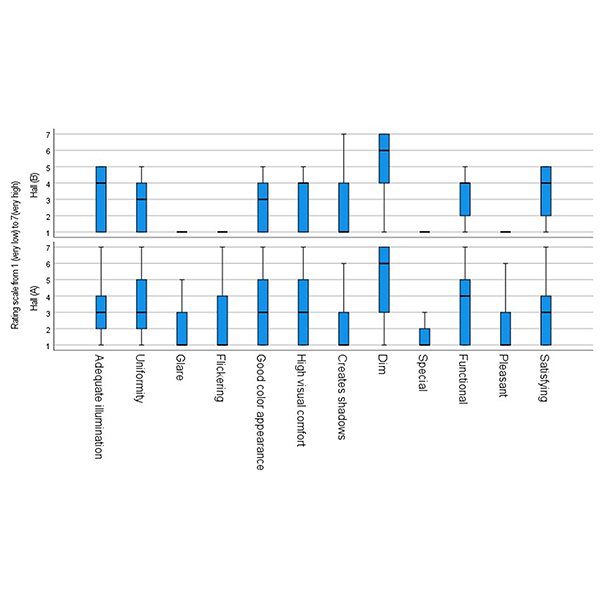
RESEARCH ARTICLE
Investigation of daylight availability in university dining halls: A case
This study evaluates the availability of daylight inside a university’s dining halls over two days (one sunny and one cloudy) using light meters in real-life sittings. .
Journal of Daylighting 11 (2024) 216-233
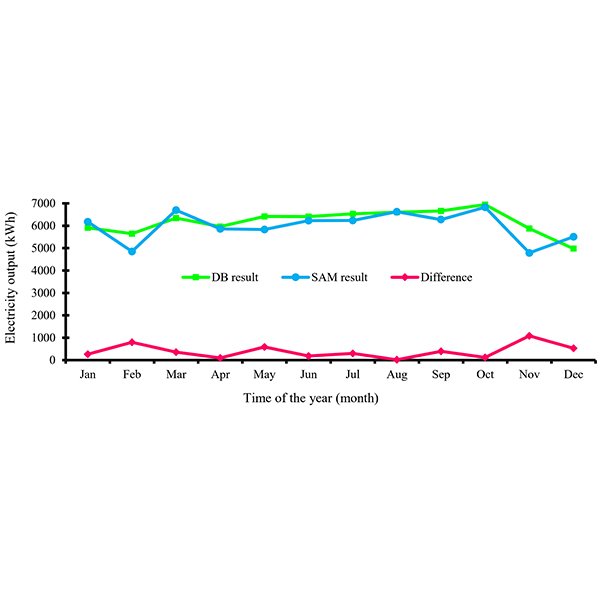
RESEARCH ARTICLE
Energy efficiency in smart schools using renewable energy strategy
As smart schools increasingly rely on technology, achieving energy efficiency becomes crucial for cost reduction and sustainability. This study investigates energy efficiency strategies in smart schools, focusing on the integration of renewable energy technologies.
Journal of Daylighting 11 (2024) 203-215
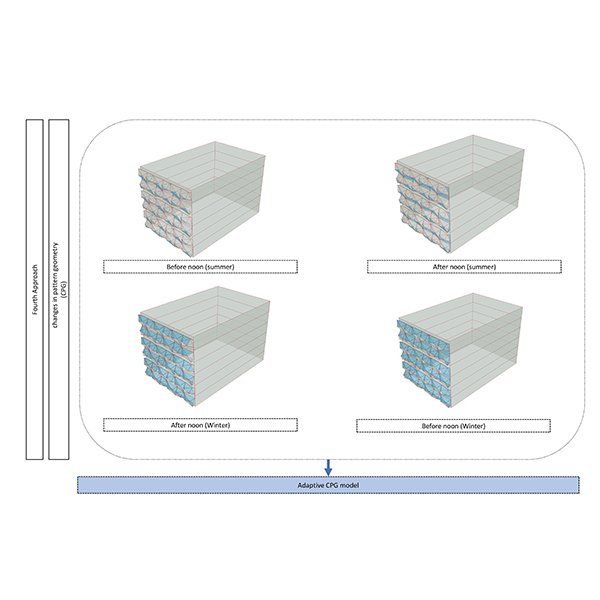
RESEARCH ARTICLE
Synergistic Strategies: Comparing Energy Performance in Climate-Adaptive Building Envelopes
Climate change and improving building energy performance are significant contemporary concerns. Conversely, climate-adaptive building envelopes (CABEs) offer promising solutions to enhance structural performance amidst fluctuating environmental conditions.
Journal of Daylighting 11 (2024) 181-202
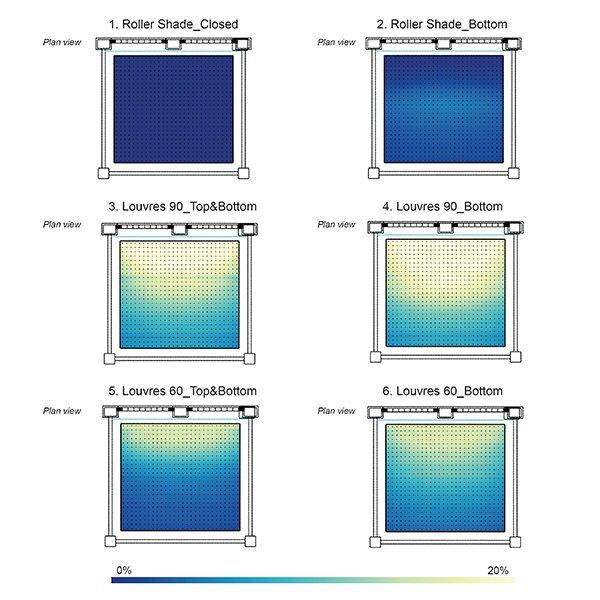
RESEARCH ARTICLE
Design Adjustments For Daylighting and Visual Comfort in a Classroom
This paper evaluates how design adjustments applied to roller shades and louvres (namely the height of the shadings head and the angles of the louvre slats) can improve their annual and spatial effectiveness to provide autonomous daylight levels, reduce daylight glare problems, and offer views outside.
Journal of Daylighting 11 (2024) 165-180
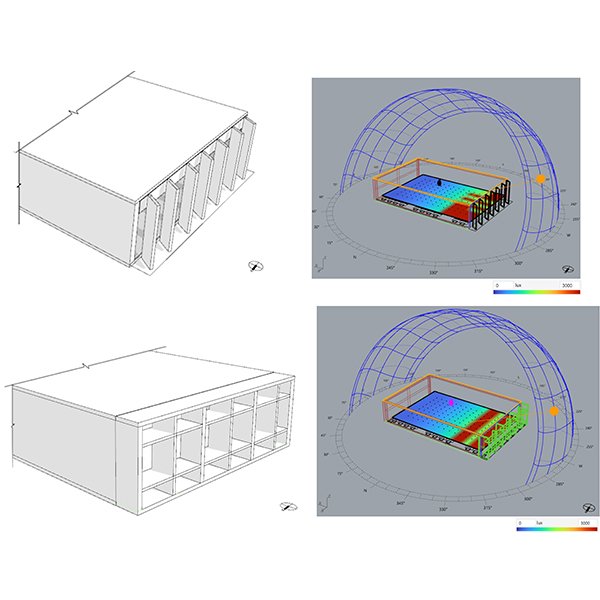
RESEARCH ARTICLE
Performance of Shading Against West Glass Facades to Optimise Daylight,
In tropical urban areas, the vertical facades of buildings often play a crucial role in capturing solar radiation and heat, especially for office buildings facing west during the afternoon.
Journal of Daylighting 11 (2024) 131-148
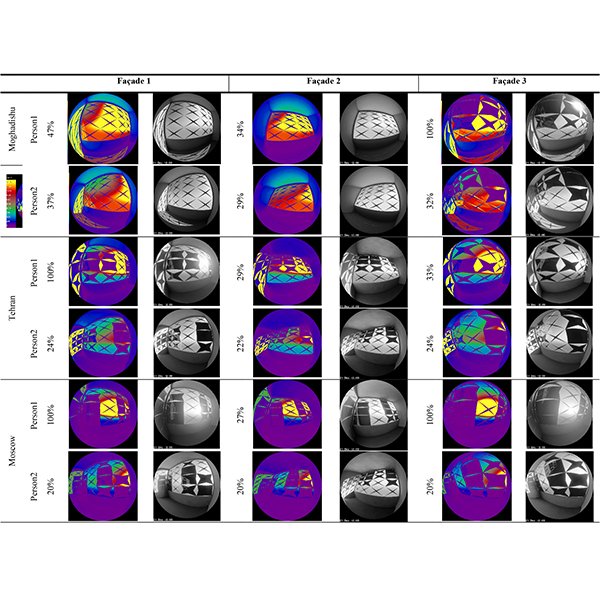
RESEARCH ARTICLE
Designerly Approach to Design Responsive Façade for Occupant Visual
In recent years, attention has focused on improving the health and satisfaction of employees by enhancing visual comfort in workplaces. This involves providing adequate natural daylight, glare control, and outdoor views.
Journal of Daylighting 11 (2024) 149-164
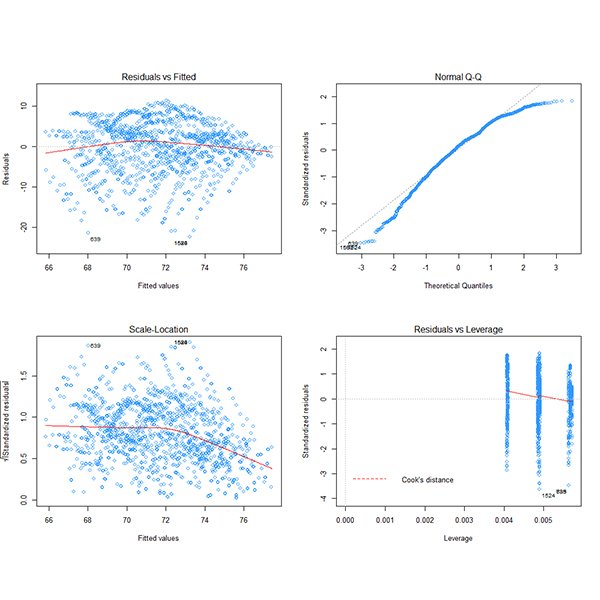
RESEARCH ARTICLE
Geometry Optimization of Industry Buildings for Energy-Driven Design Development
Even though the manufacturing industry consumes roughly 54% of total available energy globally, little consideration has been devoted to optimizing energy in the early stages of industry design, particularly in densely populated cities.
Journal of Daylighting 11 (2024) 119-130
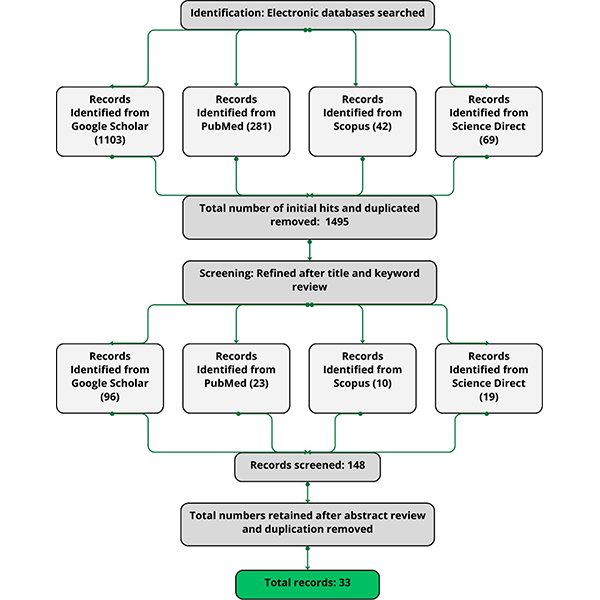
REVIEW ARTICLE
Exploring Methodological Considerations: A Literature Review on How Lighting Affects
The impacts of lighting conditions on human circadian rhythms, sleep quality, and cognitive performance have been extensively investigated in the past two decades; however, these studies have yielded inconclusive and variable outcomes.
Journal of Daylighting 11 (2024) 97-118

RESEARCH ARTICLE
Enhancing Visual Comfort and Energy Efficiency in Office Lighting Using
The number of desk workers who frequently conduct their jobs at home has increased dramatically during Covid-19. Work-from-home flexibility makes it attractive for workers and companies, resulting in a “Work-Style Reform” after the Covid-19 pandemic. Ho.
Journal of Daylighting 11 (2024) 69-96
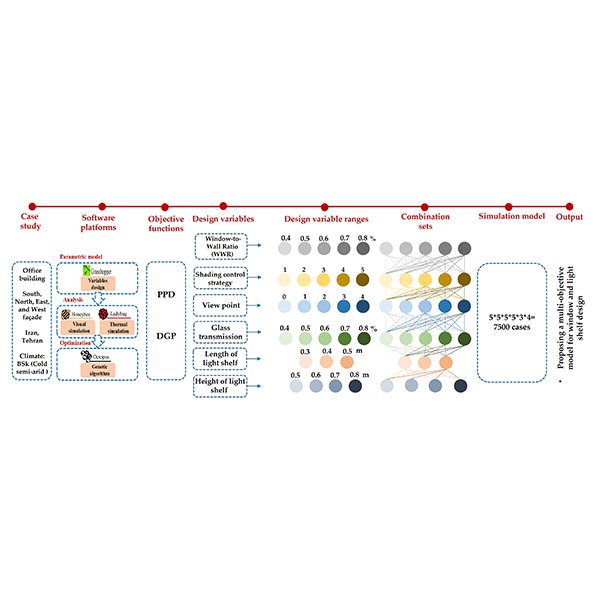
RESEARCH ARTICLE
A Multi-objective Optimization of Window and Light Shelf Design
In office buildings, an efficient design of windows and using light shelves as a passive design strategy significantly influence the thermal and visual comfort of occupants while enhancing the productivity and health of users.
Journal of Daylighting 11 (2024) 55-68
Join our Editorial Board
CVs should be submitted electronically to jd@solarlits.com.
Editorial Board

Prof. Antonio Manuel Peña García
University of Granada, Spain

Dr Valerio Roberto Maria LO VERSO
Politecnico di Torino (Polytechnic University of Turin), Italy

Dr Boon Han Lim
Universiti Tunku Abdul Rahman, Malaysia

Dr Guiqiang Li
University of Science and Technology of China, China

Prof. Lambros T. Doulos
Hellenic Open University, Greece

Dr Ferdinando Salata
University of Rome, Italy

Dr Paola Sansoni
CNR-INO, Italy

Prof. Yuehong Su
University of Nottingham, UK

Prof Umberto Berardi
Politecnico di Bari, Italy

Dr Fabio Peron
IUAV University of Venice, Italy

Prof Francesco Asdrubali
University of Perugia, Italy

Prof Laura Bellia
University of Naples Federico II, Italy

Dr Canan Kandilli
Usak University, Turkey

Prof Hongfei Zheng
Beijing Institute of Technology, China

Prof. Nabil Elminshawy
Port Said University, Egypt

Dr Paula M. Esquivias
University of Granada, Spain

Prof Jitka Mohelnikova
Brno University of Technology, Czech Republic

Wei Wang
Southeast University, 中国

Dr Petar Pejic
University of Niš, Serbia

Dr. Michele Rocca
University of Pisa, Italia

Dr. Francesca Fragliasso
University of Naples Federico II, Italy

Dr. Peng XUE
Beijing University of Technology, China

Dr Seyed Morteza Hosseini
Aalborg University, Denmark

Dr Mohammed Salah Mayhoub
Al-Azhar University, Egypt

Dr jian yao
Ningbo University, China

Dr Osama Mohamed Omar
University of Bahrain , Bahrain

Dr Lim Yaik Wah
Universiti Teknologi Malaysia, Malaysia

Alp Tural
Virginia Tech, USA

Dr. Francesco Nocera
Department of Civil Engineering and Architecture, University of Catania (ITALY), Italy

Prof. BANU MANAV
Kadir Has University, Turkey
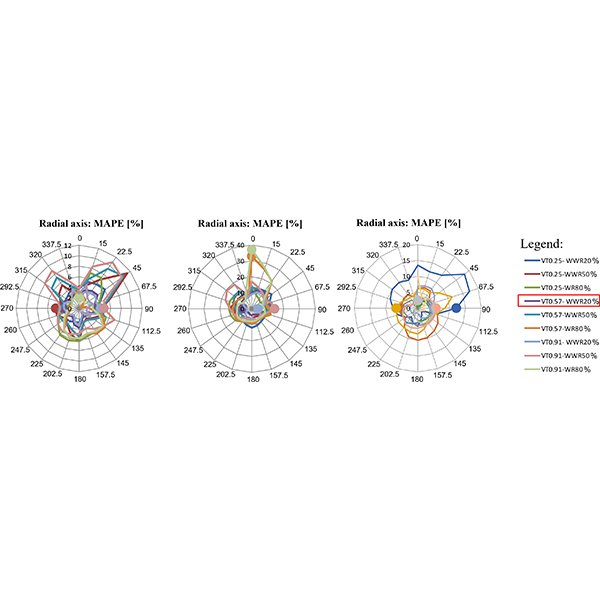
RESEARCH ARTICLE
Metamodeling of the Energy Consumption of Buildings with Daylight Harvesting –
Daylight harvesting is a well-known strategy to address building energy efficiency. However, few simplified tools can evaluate its dual impact on lighting and air conditioning energy consumption.
Journal of Daylighting 8 (2021) 255-269

RESEARCH ARTICLE
Daylighting metrics: an approach to dynamic cubic illuminance
Advances in research work in the field of numerical analysis of daylight performance have generated in-depth knowledge on photometric measurements of daylight quality.
Journal of Daylighting 5 (2018) 34-42
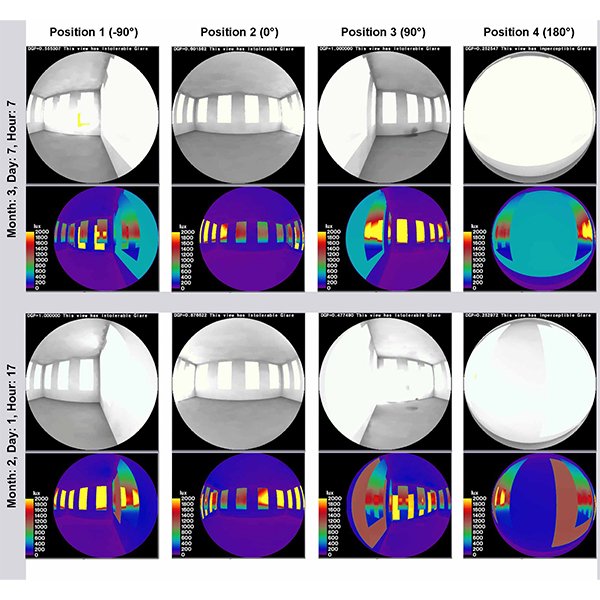
RESEARCH ARTICLE
Impact of Different Shading Devices on Daylight Performance and Visual
Daylighting has become an essential feature in libraries since it can boost productivity, well-being, and energy savings. It is crucial to prevent discomfort glare irritation while maintaining the quality of view, and daylight demands.
Journal of Daylighting 9 (2022) 97-116
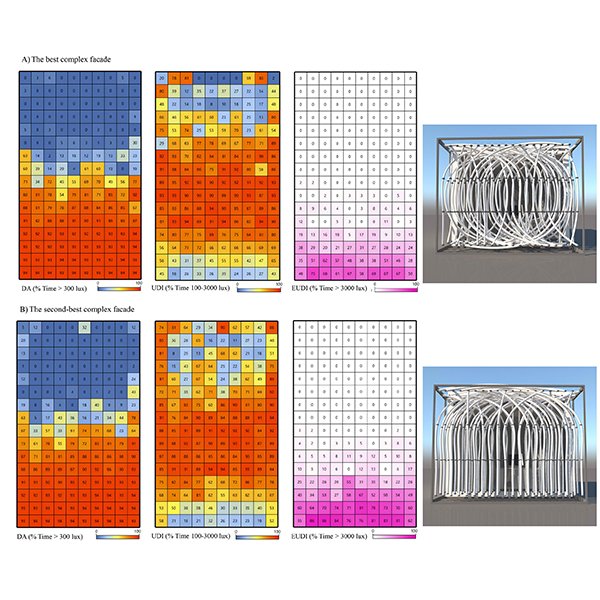
RESEARCH ARTICLE
Biomimetic Kinetic Shading Facade Inspired by Tree Morphology for Improving
Many recent studies in the field of the kinetic façade developed the grid-based modular forms through primary kinetic movements which are restricted in the simple shapes..
Journal of Daylighting 8 (2021) 65-85
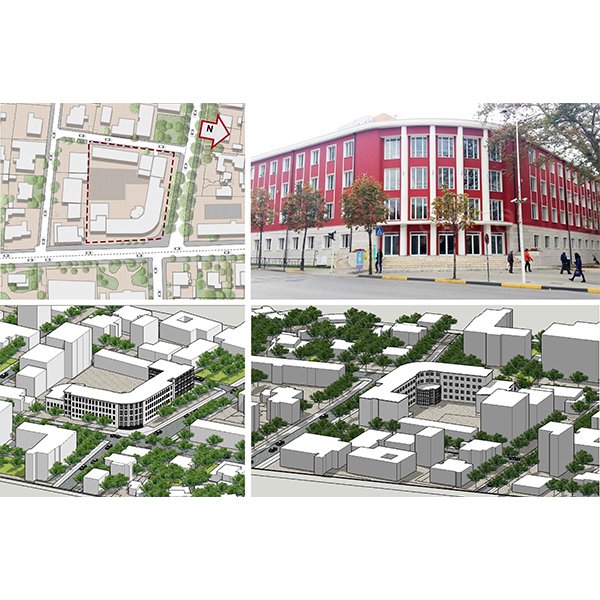
RESEARCH ARTICLE
Evaluation of the Visual Comfort and Daylight Performance of the
The daylight in classrooms is a crucial aspect that affects the quality of the learning environment and the overall performance of the students. Visual arts, such as painting, sculpture, carving, textile design and photography, require specific lighting conditions, which are different from the regular classroom standards.
Journal of Daylighting 10 (2023) 117-135
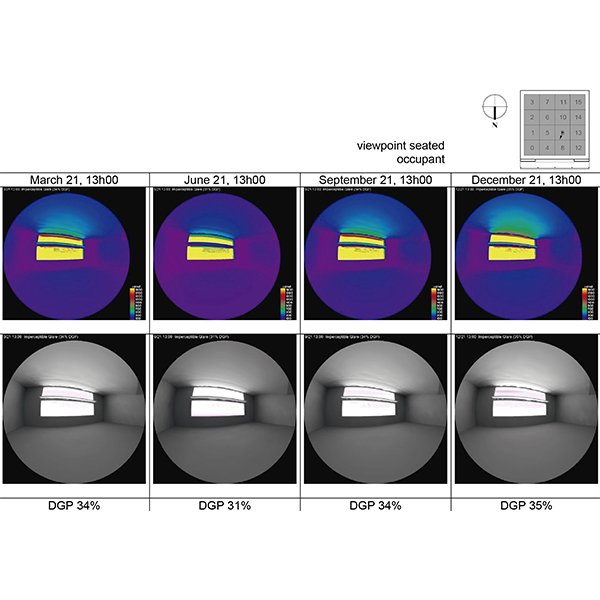
RESEARCH ARTICLE
Optimisation of Passive Solar Design Strategies in Side-lit Offices:
It has been shown that in buildings with fully glazed facades designed to save electricity and increase daylight, overheating due to excessive solar gains and glare have become recurrent problems, affecting the quality of the indoor environment in office buildings.
Journal of Daylighting 7 (2020) 107-121

RESEARCH ARTICLE
Towards New Design of Laser Cut Acrylic Panels for Windows
This paper builds upon existing research into laser cut panels and aims to find new design-patterns that would improve daylighting conditions of existing rooms when applying the laser-cut panels on vertical windows.
Journal of Daylighting 6 (2019) 1-10

RESEARCH ARTICLE
Daylighting Evaluation and Optimisation of Window to Wall Ratio for
A base case model is a more potent dose for applied research; the passive architectural design for sustainability requires optimised experiments. However, experimenting with physical developments require construction and deconstruction until they achieved the optimal scenario.
Journal of Daylighting 8 (2021) 20-35
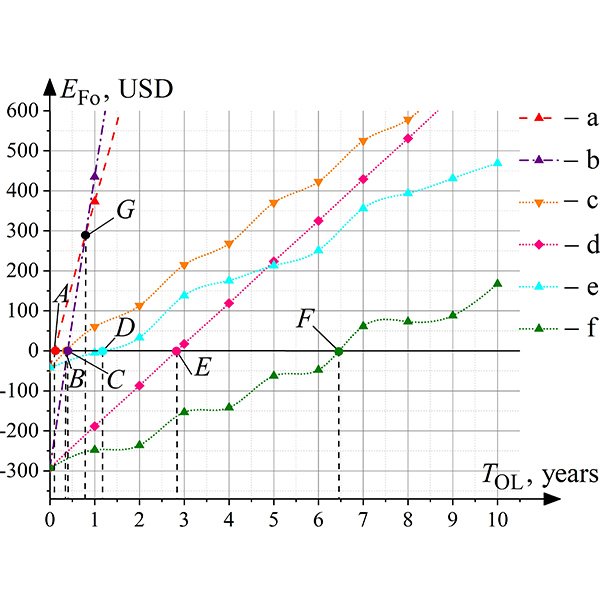
RESEARCH ARTICLE
Economic and Energy Efficiency of Artificial Lighting Control Systems for
The aim of the research is to determine the economic and energy efficiency usage of the artificial lighting control systems, with the help of astronomical relays and motion sensors, by various types of light sources for the stairwells (stair landings and staircases) of multistory residential buildings.
Journal of Daylighting 7 (2020) 93-106

RESEARCH ARTICLE
Simulation of Daylighting Conditions in a Virtual Underground City
From the Piranesi fantastic architectures to the animation movies and video games of the last thirty years, a new design approach has been introduced and developed: the design of the virtual space.
Journal of Daylighting 2 (2015) 1-11
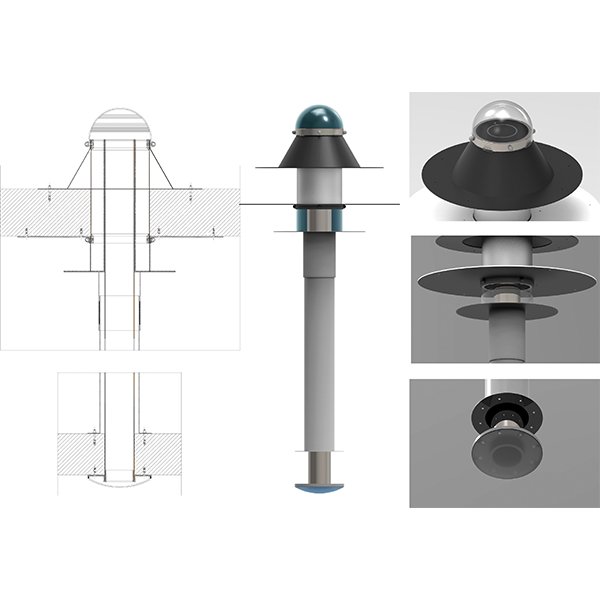
RESEARCH ARTICLE
Daylight Performance of the Modified Double Light Pipe (MDLP) Through
This paper focuses on the Modified Double Light Pipe (MDLP), an innovative daylighting system set up by the authors in the Laboratory of Technical Physics of the University “G. .
Journal of Daylighting 9 (2022) 164-176
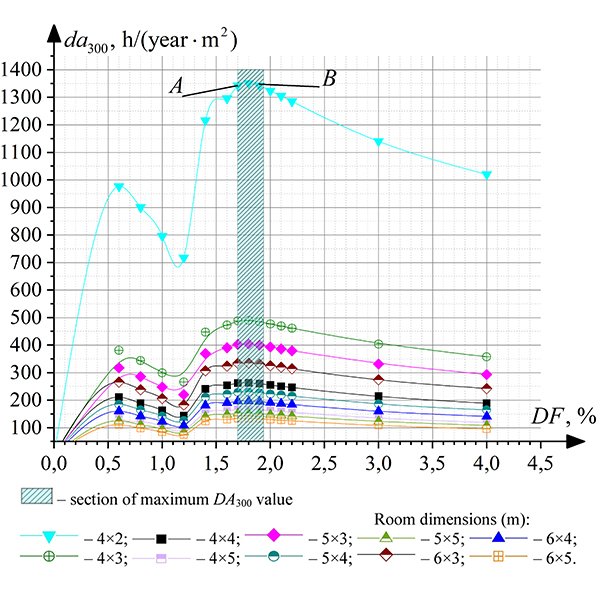
RESEARCH ARTICLE
Effective Use of Daylight in Office Rooms
The rational use of daylight can significantly reduce the cost of electricity for artificial lighting. This research aims at investigating the parameters of translucent structures of building envelope, and the value of daylight factor, for which maximum efficiency of daylight usage is achieved in office rooms.
Journal of Daylighting 7 (2020) 154-166

RESEARCH ARTICLE
Optimization of Daylight Performance Based on Controllable Light-shelf Parameters
This study aims to achieve a balance of daylight availability in the work-plane environments of a fully glazed facade integrated with a light shelf system using an optimization procedure that can assist architects with assessing the daylighting performance of numerous design alternatives, and build-up the optimized design.
Journal of Daylighting 7 (2020) 122-136
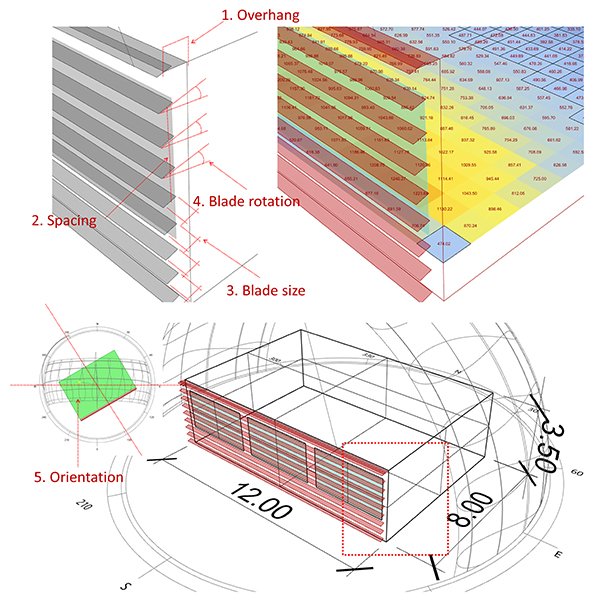
RESEARCH ARTICLE
The optimization of louvers shading devices and room orientation under
This paper presents parametric and multi-objective optimization (MOO) approach in optimizing daylight and energy consumption by incorporating louvres shading devices depicting three different sky conditions: Birmingham, UK, Jakarta, Indonesia, and Sydney, Australia.
Journal of Daylighting 9 (2022) 137-149
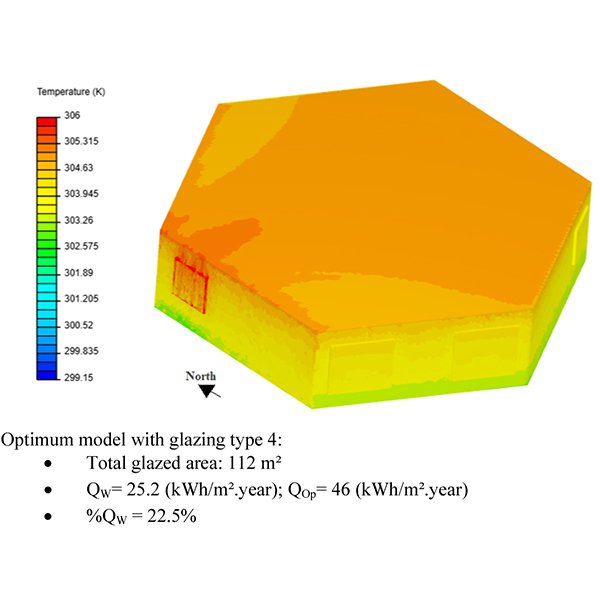
RESEARCH ARTICLE
Improvement of Daylight Factor Model for Window Size Optimization and
Based on a new approach for the prediction of the Daylight Factor (DF), using existing empirical models, this research work presents an optimization of window size and daylight provided by the glazed apertures component for a building located in a hot and dry climate.
Journal of Daylighting 8 (2021) 204-221
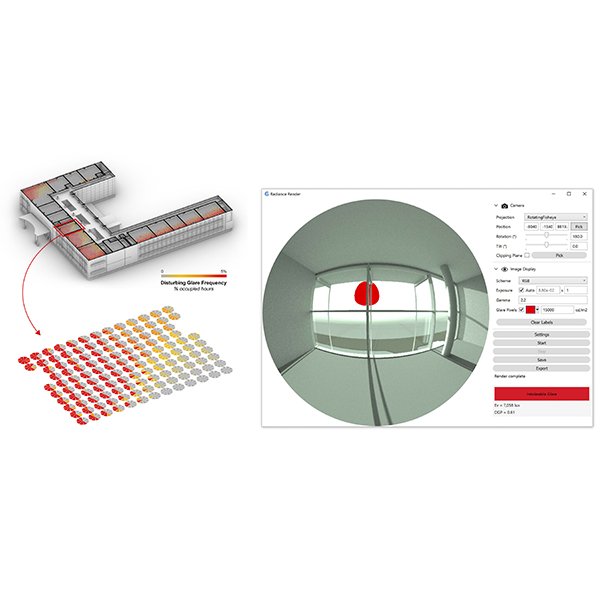
RESEARCH ARTICLE
The Effect of Parametric Patterned Façade Variations on Daylight
Parametric design influences on building envelope design are exponentially increasing in the current era due to the dominance of computational design on architectural outcomes.
Journal of Daylighting 10 (2023) 173-191

RESEARCH ARTICLE
Development of a Machine-Learning Framework for Overall Daylight and
Application of machine learning methods as an alternative for building simulation software has been progressive in recent years. This research is mainly focused on the assessment of machine learning algorithms in prediction of daylight and visual comfort metrics in the early design stages and providing a framework for the required analyses.
Journal of Daylighting 8 (2021) 270-283

RESEARCH ARTICLE
A New Trend for Indoor Lighting Design Based on A
Most power system planners are interested in the savings of electrical power consumption. Various references demonstrate that the highest consumed power is by the lighting systems standing around 19% of worldwide energy consumption.
Journal of Daylighting 7 (2020) 137-153
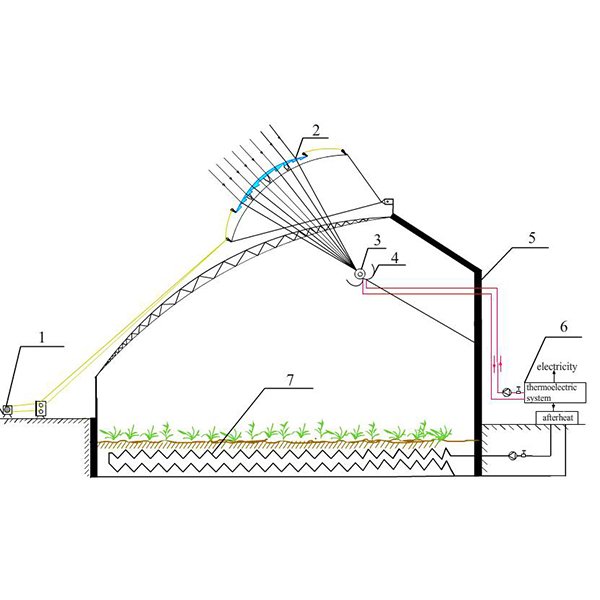
RESEARCH ARTICLE
Optical Analysis of A Sliding-Type Cylindrical Fresnel Lens Concentrating
Agricultural greenhouses are commonly built around cities to supply residents with agricultural products or green plants. With an increasing demand for plants’ growing environment, the temperature and illumination inside the greenhouses are counted especially during cold winter. .
Journal of Daylighting 8 (2021) 110-119

RESEARCH ARTICLE
Solar Energy Gain and Space-Heating Energy Supply Analyses for
A considerable effort is devoted to devising retrofit solutions for reducing space-heating energy in the domestic sector. Existing UK solid-wall dwellings, which have both heritage values and historic fabric, are being improved but yet they tend to have meagre thermal performance, partly, due to the heat-loss through glazings.
Journal of Daylighting 4 (2017) 15-25

RESEARCH ARTICLE
A Novel Approach to Multi-Apertures and Multi-Aspects Ratio
Daylightophil architecture concept is one of the most significant ways to reduce the electrical load consumption in building sector. In deep-plan buildings, or windowless buildings, advanced light transmission systems are used to compensate lighting demands in high-performance architecture theory.
Journal of Daylighting 7 (2020) 186-200

RESEARCH ARTICLE
Application of Different Circadian Lighting Metrics in a Health Residence
During the last three decades, various scientific researchers analysed the connection between natural elements and human life, both as far as well-being and productivity.
Journal of Daylighting 7 (2020) 13-24

RESEARCH ARTICLE
Comparative Investigation of Daylight Glare Probability (DGP) Comfort Classes in
Glare is considered one of the most important variables to reach visual comfort and visual quality. It represents one of the fundamental barriers for an effective use of daylighting in buildings.
Journal of Daylighting 8 (2021) 284-293
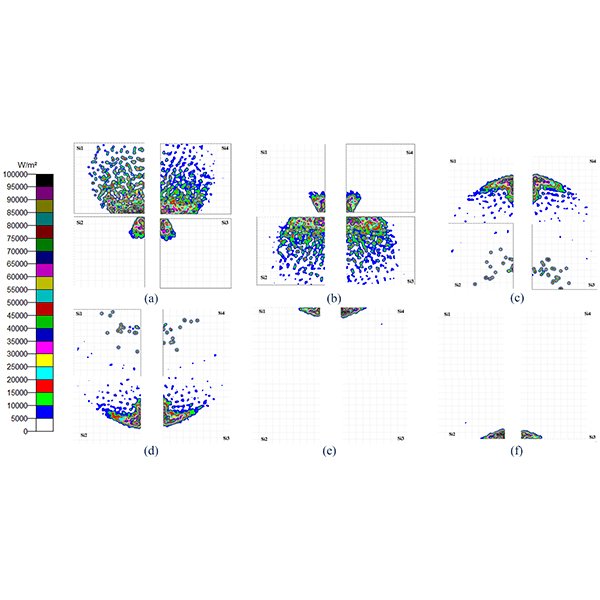
RESEARCH ARTICLE
Improvement of Optical Performances Using the Hybrid CPV
Hybrid Concentrated Photovoltaics (HCPVs) are systems in which additional low-cost silicone solar cells are added to take advantage of the power generated by the diffuse radiation lost when using only multi-junction cells that work only with direct radiation.
Journal of Daylighting 7 (2020) 238-245

RESEARCH ARTICLE
Quantitative Investigation Through Climate-based Daylight Metrics of Visual Comfort
There are several alternatives to passive strategies in the early stages of the design process including orientation, window to wall ratio, shading device, material and colour that affect occupants’ visual comfort. .
Journal of Daylighting 5 (2018) 21-33
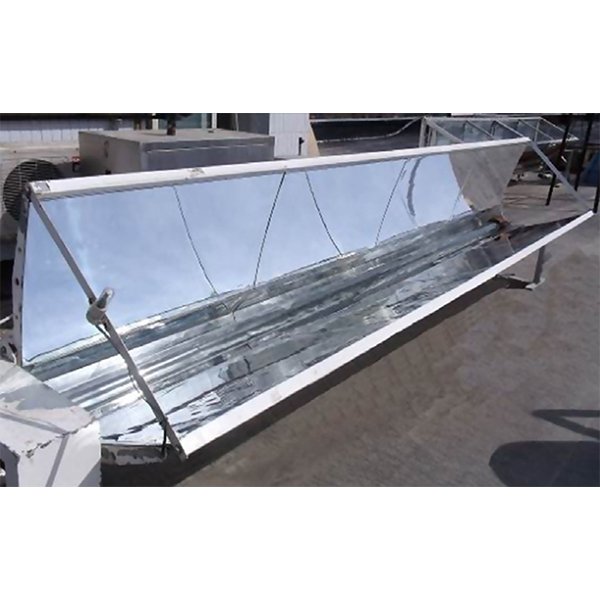
RESEARCH ARTICLE
Design of a Multi-Surface Solar Concentrator
A multi-surface solar concentrator is proposed in this study. The concentrator is designed by improving the light receiving rate of a parabola when the incident angle changes within 0°~20° by adding involute, shifting the involute up, and changing the shape of the parabolic top. .
Journal of Daylighting 6 (2019) 176-186

RESEARCH ARTICLE
Daylight utilization with light pipe in farm animal production: a
Light pipes, which are complex optical systems, offer a passive way to bring daylight to deep buildings, such as agricultural buildings. However, the lack of reliable performance predictability methods for light pipes represents a major obstacle preventing their widespread use.
Journal of Daylighting 3 (2016) 1-11

RESEARCH ARTICLE
Power Factor Correction of Compact Fluorescent and Tubular LED Lamps
Compact Fluorescent Lamps (CFLs) and Light-emitting Diode (LED) lamps have received wide acceptance in lighting applications during the last few years.
Journal of Daylighting 7 (2020) 73-83

RESEARCH ARTICLE
Optimum Glazing Configurations for Visual Performance in Algerian Classrooms under
Daylight quality and quantity in Algerian schools show serious problems in ensuring visual comfort of students and teachers. Some problems are due to window design, which leads to excessive amount of sunlight penetration into the classrooms.
Journal of Daylighting 6 (2019) 11-22

RESEARCH ARTICLE
Lighting to Enhance Wayfinding for Thai Elderly Adults in Nursing
The main purpose of this study was to explore the effects of lighting and other environmental variables in terms of the colour, signage, and furnishings on the indoor wayfinding of Thai seniors in a nursing home.
Journal of Daylighting 7 (2020) 25-36
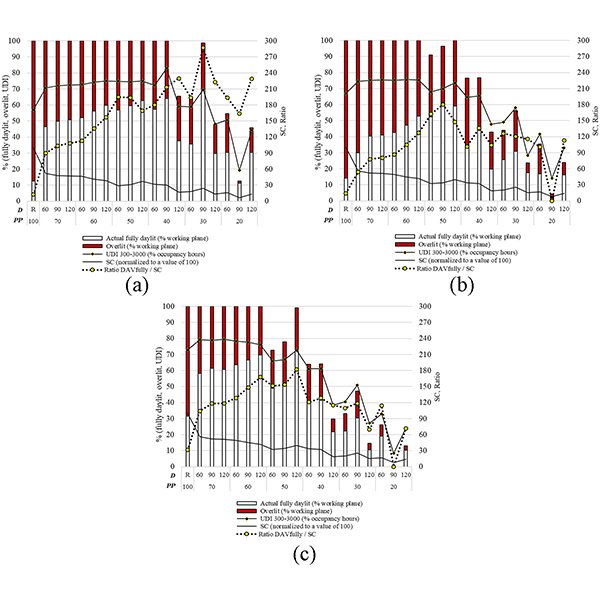
RESEARCH ARTICLE
A Comprehensive Evaluation of Perforated Façades for Daylighting and
New design tools have enabled architects to explore complex geometries for building envelopes. Perforated Screens (PS) have gained popularity but their design is still intuitive, often focused on aesthetic and morphological criteria.
Journal of Daylighting 6 (2019) 97-111

RESEARCH ARTICLE
The Impact of Courtyard and Street Canyon Surroundings on Global
Exposing oneself to outdoor daylight in the morning can be healthy and harmful at the same time, due to the risk of ultraviolet exposure. The presence of surrounding buildings in the urban context may also influence the risk.
Journal of Daylighting 7 (2020) 167-185

REVIEW ARTICLE
Daylight Transport Systems for Buildings at High Latitudes
This paper is a literature study of daylight transport systems aiming at selecting the most appropriate ones for application at high latitudes. It is limited to the systems that transport light at a long distance from the façade and distribute it either in the building core or at a rear place in a room adjacent to the façade. .
Journal of Daylighting 6 (2019) 60-79

RESEARCH ARTICLE
Application of Micro-structured Sunlighting Systems in Different Climatic Zones
Two-sided micro-structures on windowpanes have been developed for redirecting sunlight into the depth of rooms in order to improve daylighting. In a joint research project comprehensive sunlighting-systems for windows are developed, integrating micro-structures in triple-glass units.
Journal of Daylighting 6 (2019) 52-59

RESEARCH ARTICLE
Optical Characteristic Investigation on an Underwater Adjustable Focus Solar Concentrator
This paper presents an underwater adjustable focus solar concentrator, which is composed of a piece of transparent elastic membrane and a hollow cylindrical-like structure.
Journal of Daylighting 6 (2019) 169-175
 HOME
HOME